‘Widow Clicquot’ charts a private Odyssey undertaken in the confines of the French vineyards of Verzy by a passionate champagne maker who must fight to keep hold of her estate. After the passing of François Clicquot, his widow, Barbe-Nicole, inherits her husband’s lush vineyards and all the winemaking dreams that come with it. However, her father-in-law, Philippe, doesn’t believe in the abilities of a woman to run a business—neither does most of society under the Napoleonic Code. As a result, Barbe must fight against her ill-wishers and society’s oppressive thinking to prove her worth and fulfill her ambitions.
As Barbe embarks on this impressive venture, there are only a few who are willing to support her dreams. However, Louis Bohne, a close merchant friend of François, remains a dependable companion by the woman’s side. As the two grow close, sharing their grief over François and their love for the business, a precarious romance inevitably blooms. SPOILERS AHEAD!
Barbe and Louis: Close Friends and Business Partners
Barbe’s acquaintanceship with Louis goes far back to the latter’s friendship with François. The Clicquot couple had long been attempting to grow their winemaking business to usually middling—or worse—results. Still, Louis Bohne, one of the best merchants around, remained in business with the couple as a testament to his faithful friendship. Louis shared a close bond with François—perhaps even one that went beyond the strict definition of platonic. Similarly, Barbe held Louis in high regard, enjoying his company and favoring him for his dear place in her husband’s life. As a result, after the death of François, the merchant continues to lend his services to his widow.
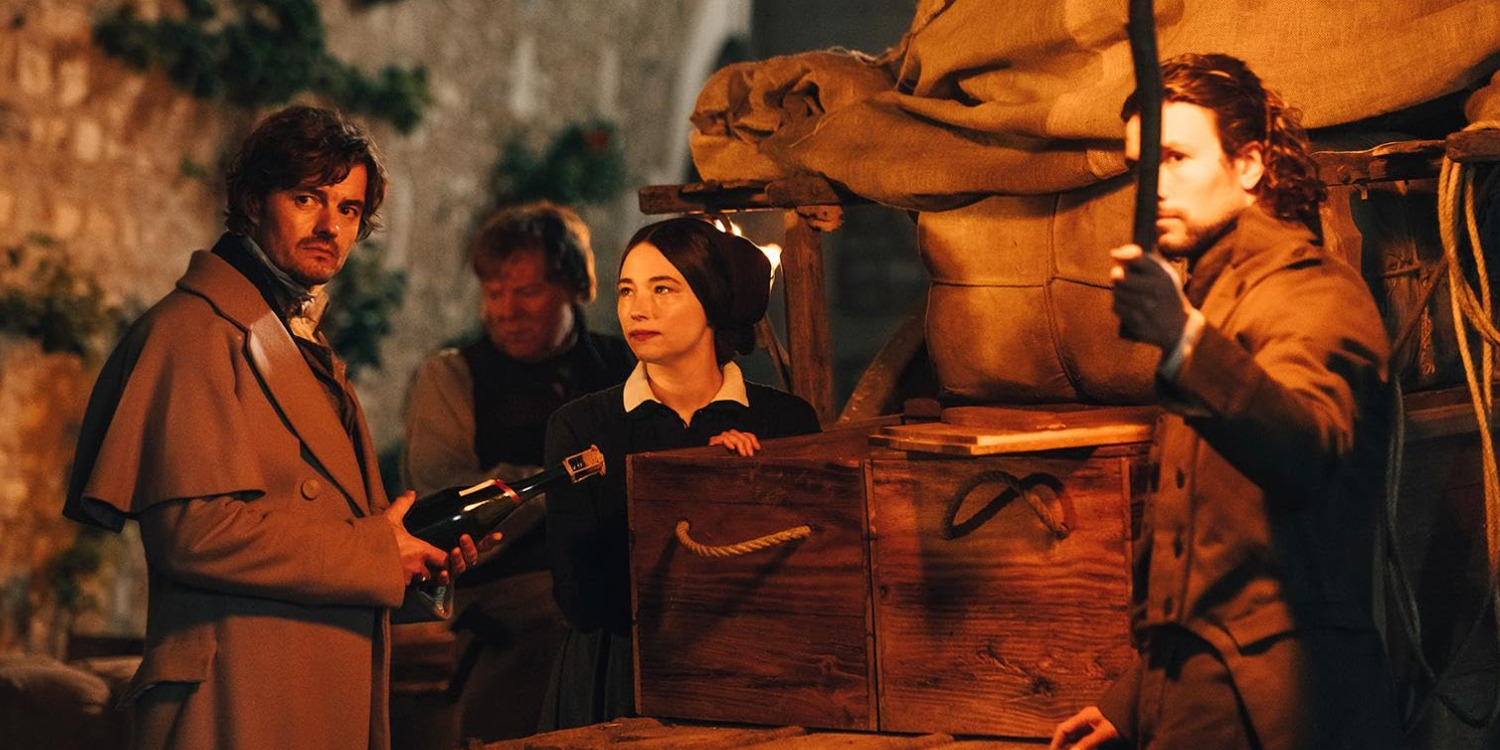
When Barbe initially starts managing the Clicquot vineyards, she faces trouble with asserting her authority. As a woman in a time when women weren’t allowed to run businesses—unless carrying forward their husband’s work after their deaths—Barbe struggled to gain the respect and obedience of her workers. Droite, the business partner of her father-in-law, Phillipe, particularly disliked her authority since he wanted to buy the vineyards from under her nose. Among these challenges, Barbe finds a helping hand in Louis, who shares his—at times dubious and ignorant—advice and remains a supportive pillar by her side.
Therefore, when the time comes, Barbe shares her more adventurous business plans with Louis, knowing she can trust him completely. The times are difficult for the produce coming out of the Clicquot vineyard. On top of the need to make up for past losses, Clicquot wine and champagnes also have to combat a competitive market that they’re already behind on. However, Barbe finds a workaround to this issue through a legally loose maneuver. She wants their batch’s shipment to be made around the blockade formed due to the Napoleonic Wars and to enter their wine into the market outside of France. However, her plan fails after the journey’s blistering heat spoils the haul from Verzy to Amsterdam.
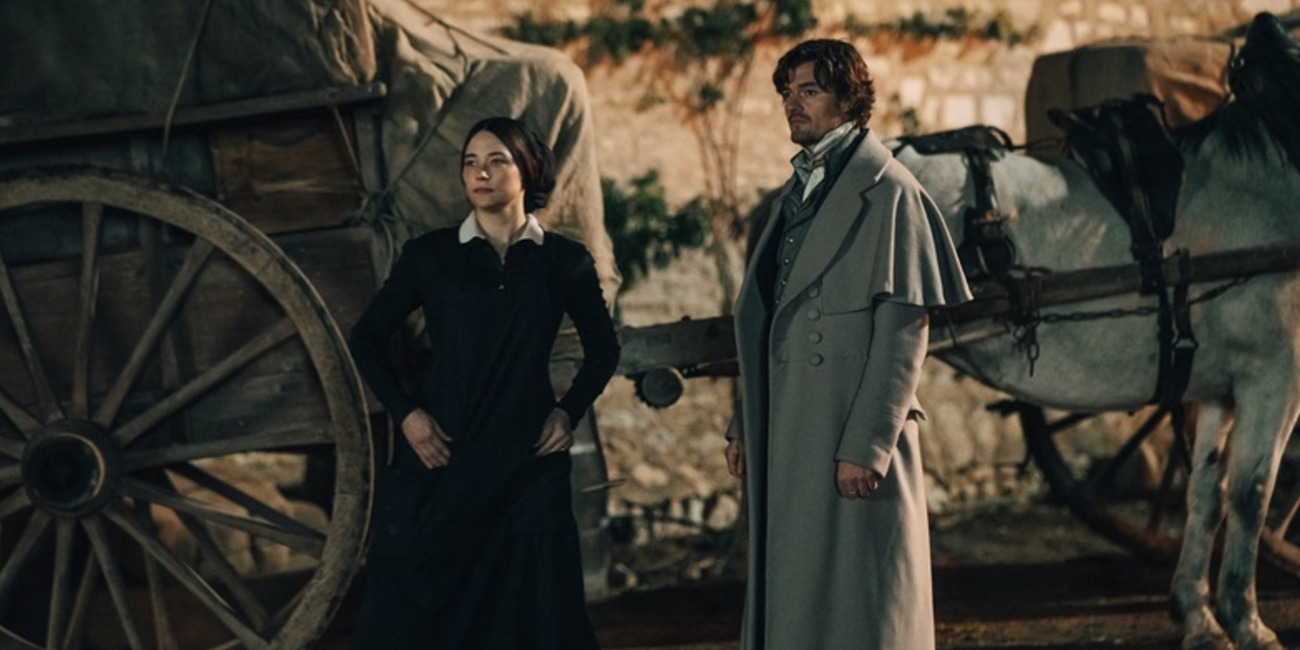
Still, Louis manages to save a scant few bottles, which he shares with one of his royal friends, who ends up developing a fondness for the wine. As a result, after one too many failures, Barbe’s business finally blooms. Furthermore, once the woman develops a way to expedite the winemaking procedure through the invention of the riddling process, she’s able to meet high demands efficiently. As such, the Clicquot wine soon dominates the market—inviting the ire of her competition. Thus, in a bid to discredit and drag her off the game board, Droite takes her to court, challenging her right to own a business as a woman.
Barbe’s Relationship With Louis Threatens Her Business
Over the course of the late nights that Barbe spends in her mansion’s office to perfect her winemaking techniques, she and Louis inevitably grow closer. A certain heat had always existed between the pair that became stronger with their partnership. Therefore, it’s only a matter of time before the two fall into bed together. From the get-go, an understanding seems to exist between the two about the nature of their relationship. While both deeply care for the other affair, it isn’t quite the same as the marriage Barbe had with François. Instead of romance and domestic life, companionship and passion build the pillars of Barbe’s relationship with Louis.
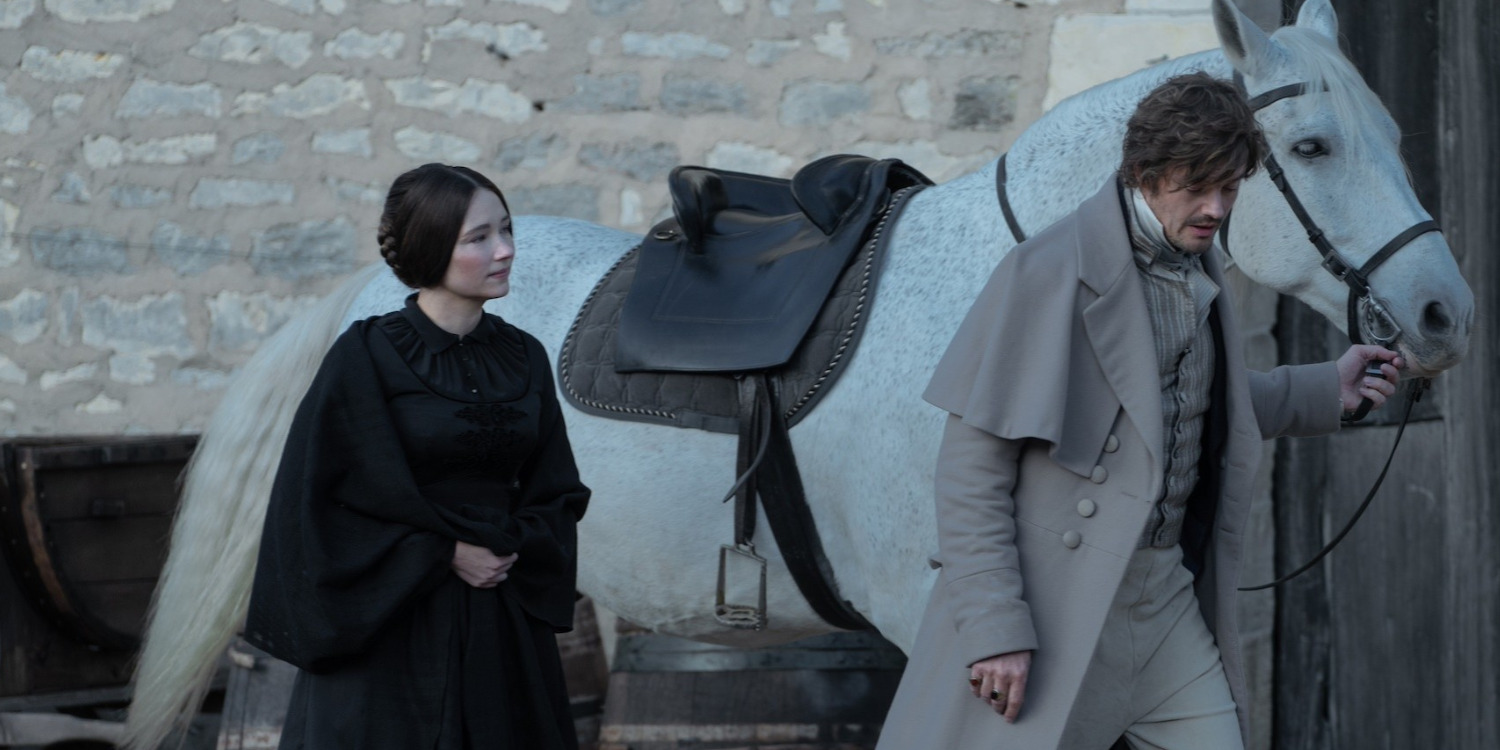
Nonetheless, the same threatens to pose a threat to Barbe’s ambitions once outsiders begin to notice her closeness with Louis. As Droite takes Barbe to the court, he questions her ability to run a business as a woman. He argues that her “inferior wines” are ruining the name of adjacent local businesses. Yet, since widows are allowed to run their departed husband’s businesses—and François explicitly leaves the business to his wife—Droite doesn’t have a real claim against Barbe. That is until he brings up her relationship with Louis.
Droite argues that Barbe is only maintaining her widowhood to exploit the Napoleonic Code and that she can remarry her lover, Louis, at any time, which would make her ineligible to manage the Clicquot vineyards. However, things are seldom that simple. While it is true that Barbe loves Louis, neither individual seeks a marriage out of their arrangement. Furthermore, the woman is far more invested in running her business. Therefore, Barbe tries to make the same point—maintaining that being François’ widow is true to her identity since she still loves the man and wants to carry forward his legacy.
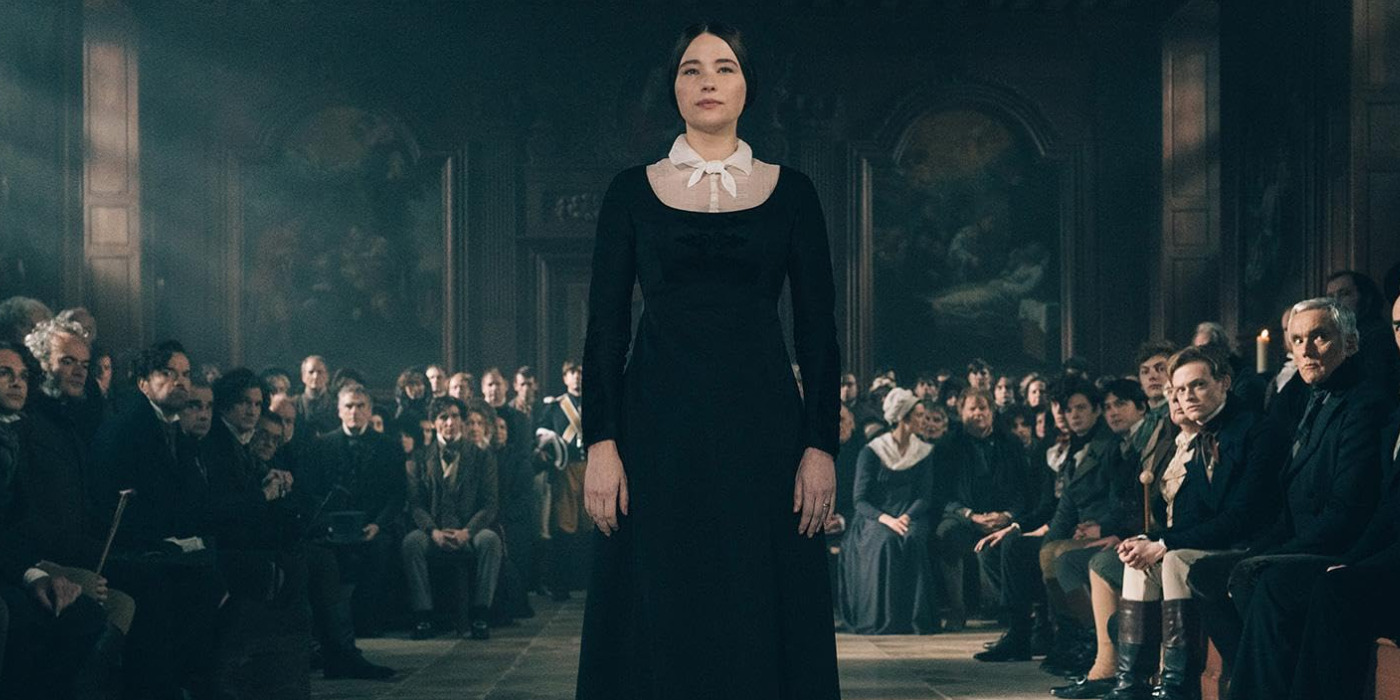
To make things simpler, Louis steps in and asks for Barbe’s hand in marriage. Even though neither has discussed it earlier, Barbe can see the action for what it is. Louis only asks the woman to marry him in public to provide everyone with firm evidence of her continued widowhood. As Barbe turns him down publicly, the possibility of her remarrying dissipates in one fell swoop, rendering Droite’s attempts moot. In the end, Barbe declines Louis’ proposal because marriage was never in the cards for the couple.
Barbe and Louis likely continue their romantic and sexual relationship after the film’s events, enjoying each other’s company while the woman enjoys her legal liberty as a businesswoman. The real-life Barbe-Nicole Ponsardin Clicquot, on whom the film is based, shared much the same fate, as she remained un-remarried until her death at 89 years old. Although the real champagne producer was also in business with the real businessman Louis Bohne, their affair has always just been a thing of historical speculation.
Read More: Widow Clicquot: Is The Movie Based on a True Story?

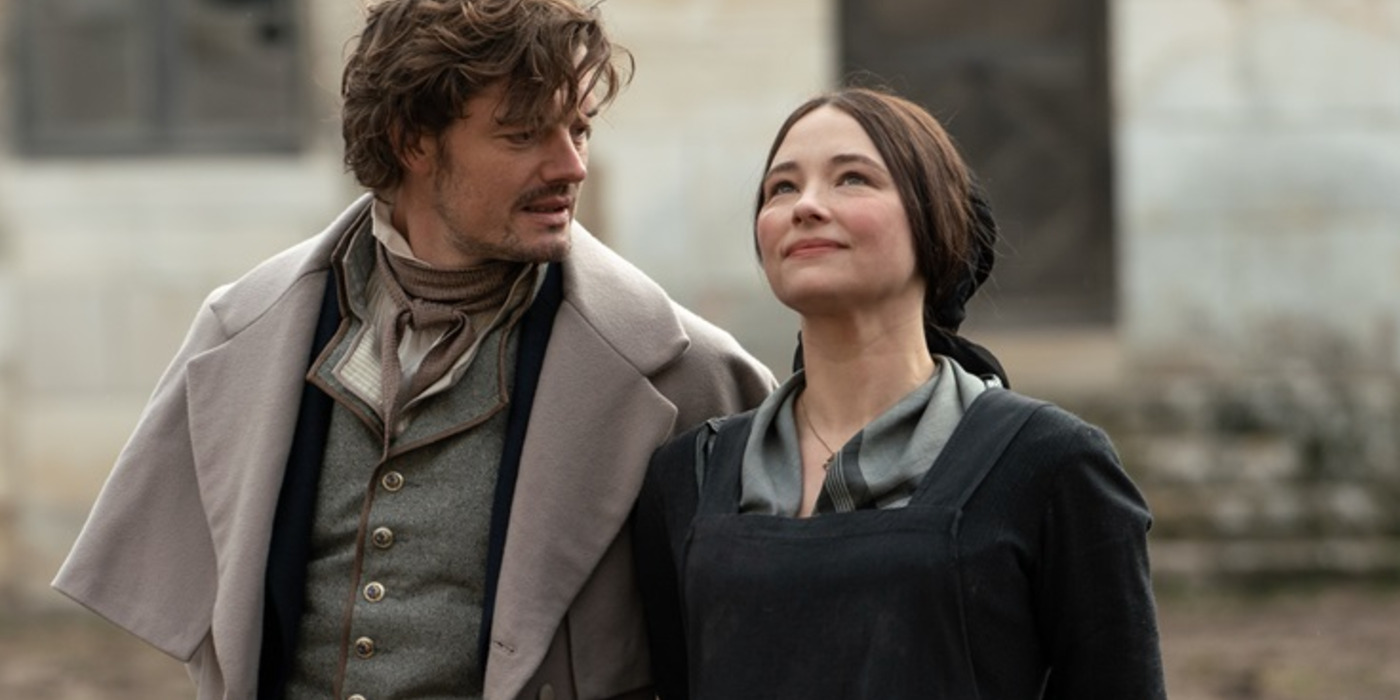
You must be logged in to post a comment.